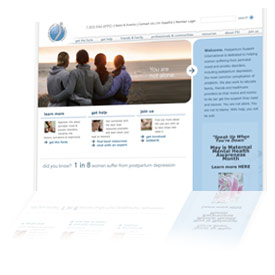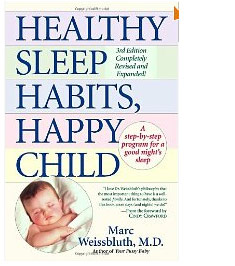Perinatal Mood & Anxiety Disorders Overview
- Are you feeling sad or depressed?
- Do you feel more irritable or angry with those around you?
- Are you having difficulty bonding with your baby?
- Do you feel anxious or panicky?
- Are you having problems with eating or sleeping?
- Are you having upsetting thoughts that you can’t get out of your mind?
- Do you feel as if you are “out of control” or “going crazy”?
- Do you feel like you never should have become a mother?
- Are you worried that you might hurt your baby or yourself?
Any of these symptoms, and many more, could indicate that you have a form of perinatal mood or anxiety disorder, such as postpartum depression. While many women experience some mild mood changes during or after the birth of a child, 15 to 20% of women experience more significant symptoms of depression or anxiety. Please know that with informed care you can prevent a worsening of these symptoms and can fully recover. There is no reason to continue to suffer.
Women of every culture, age, income level and race can develop perinatal mood and anxiety disorders. Symptoms can appear any time during pregnancy and the first 12 months after childbirth. There are effective and well-researched treatment options to help you recover. Although the term “postpartum depression” is most often used, there are actually several forms of illness that women may experience, including:
- Pregnancy (also called antepartum) or Postpartum Depression.
A woman with PPD might experience feelings of anger, sadness, irritability, guilt, lack of interest in the baby, changes in eating and sleeping habits, trouble concentrating, thoughts of hopelessness and sometimes even thoughts of harming the baby or herself. - Pregnancy (also called antepartum) or Postpartum Anxiety.
A woman with PPA may experience extreme worries and fears, often over the health and safety of the baby. Some women have panic attacks and might feel shortness of breath, chest pain, dizziness, a feeling of losing control, and numbness and tingling. - Pregnancy or Postpartum Obsessive-Compulsive Disorder.
Women with PPOCD can have repetitive, upsetting and unwanted thoughts or mental images (obsessions), and sometimes they need to do certain things over and over (compulsions) to reduce the anxiety caused by those thoughts. These moms find these thoughts very scary and unusual and are very unlikely to ever act on them. - Postpartum Post-Traumatic Stress Disorder.
PPTSD is often caused by a traumatic or frightening childbirth, and symptoms may include flashbacks of the trauma with feelings of anxiety and the need to avoid things related to that event. - Postpartum Psychosis.
PPP sufferers sometimes see and hear voices or images that others can’t, called hallucinations. They may believe things that aren’t true and distrust those around them. They may also have periods of confusion and memory loss, and seem manic. This severe condition is dangerous so it is important to seek help immediately.

Websites
- American Academy of Pediatrics
- Postpartum Support International
- The Postpartum Resource Center of NY
- American Psychological Association
- Guernsey Postnatal Depression Support Group
- Reproductive Justice Agenda
- New York Lactation Consultant Association
- Kelly MOM- Parenting/Breastfeeding
Books
On First Time Parenting
-
Your One-Year-Old: The Fun-Loving, Fussy 12-To 24-Month-Old
Louise Bates Ames, Frances L. Ilg -
Twelve Hours of Sleep by Twelve Weeks Old
Suzy Giordano with Lisa Abdin -
Healthy Sleep Habits, Happy Child
Marc Weissbluth -
Child Behavior the classic child care manual from the Gesell Institute of Human Development
Frances L. Ilg, Louise Bates Ames, Sidney M. Baker -
1-2-3 Magic: Effective Discipline for Children 2-12
Thomas W. Phelan -
Baby's Eat, Sleep & Poop Journal, Log Book
Sandra Kosak 
On Second Time Parenting
-
Welcoming Your Second Baby
Vicky Lansky -
Siblings without Rivalry
Adele Faber and Eileen Mazlish
